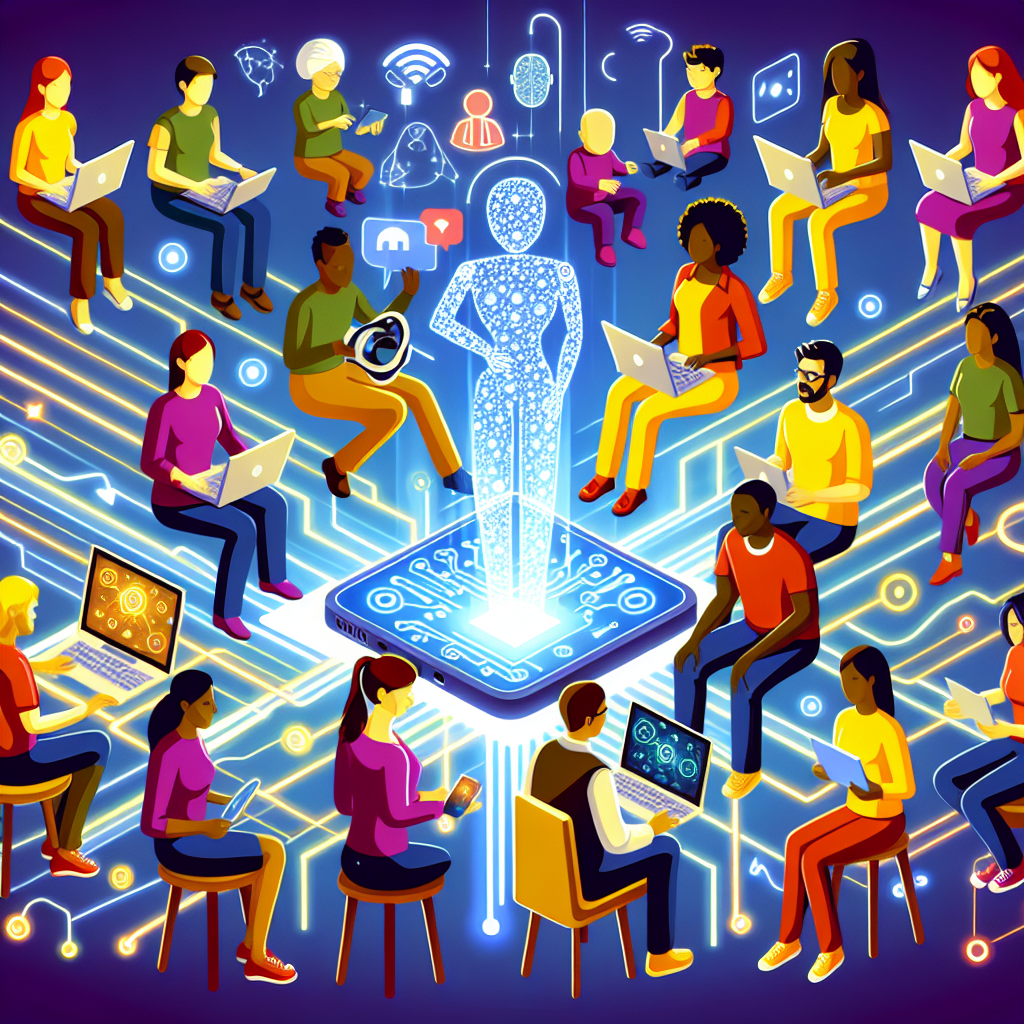In recent years, there has been a growing movement towards democratizing artificial intelligence (AI) technology. This movement aims to make AI more accessible to individuals and organizations of all sizes, empowering them to harness the power of AI to transform their businesses and improve their lives. By democratizing AI, we can unlock the potential of this revolutionary technology and enable more people to benefit from its capabilities.
What is AI Democratization?
AI democratization refers to the process of making AI technology more accessible and affordable to a wider range of people and organizations. Traditionally, AI has been the domain of large tech companies and research institutions, with access to cutting-edge AI tools and expertise limited to a select few. However, as AI technology has advanced and matured, there has been a growing recognition of the need to make AI more inclusive and available to a broader audience.
By democratizing AI, we can empower individuals and organizations to leverage the power of AI to solve complex problems, make better decisions, and drive innovation. This can have far-reaching implications across a wide range of industries, from healthcare and finance to marketing and manufacturing. By democratizing AI, we can enable more people to benefit from the transformative potential of this technology and drive positive change in society.
How is AI Democratization Empowering Individuals?
AI democratization is empowering individuals in a number of ways. Here are some of the key ways in which AI democratization is enabling people to harness the power of AI:
1. Access to AI Tools and Resources: By democratizing AI, individuals and organizations can access a wide range of AI tools and resources that were previously out of reach. This includes open-source AI libraries, pre-trained AI models, and cloud-based AI services that make it easier than ever to build and deploy AI applications.
2. Affordable AI Solutions: AI democratization has also made AI technology more affordable, with a growing number of AI platforms and services offering pay-as-you-go pricing models that make it easier for individuals and organizations to experiment with AI without breaking the bank.
3. Democratizing AI Education: AI democratization has also led to a proliferation of online AI courses and tutorials that make it easier for people to learn about AI and develop their skills. This has opened up new opportunities for individuals to pursue careers in AI and drive innovation in their respective fields.
4. Empowering Citizen Data Scientists: AI democratization is also empowering citizen data scientists – individuals with domain expertise who are able to apply AI tools and techniques to analyze data and extract insights. By democratizing AI, we can enable more people to become data-driven decision-makers and drive innovation within their organizations.
5. Driving Innovation and Creativity: By democratizing AI, we can unlock the creative potential of individuals and enable them to develop new AI applications and solutions that address real-world challenges. This can lead to breakthroughs in areas such as healthcare, education, and sustainability, driving positive change in society.
FAQs about AI Democratization
Q: What are some examples of AI democratization in action?
A: One example of AI democratization in action is the use of AI-powered chatbots to improve customer service. Many companies are now using AI chatbots to provide instant responses to customer inquiries, reducing the need for human agents and improving the overall customer experience. Another example is the use of AI-powered image recognition tools to automate the analysis of medical images, enabling healthcare professionals to make faster and more accurate diagnoses.
Q: How can individuals benefit from AI democratization?
A: Individuals can benefit from AI democratization in a number of ways, including access to affordable AI tools and resources, opportunities to learn about AI through online courses and tutorials, and the ability to drive innovation and creativity through the development of AI applications and solutions.
Q: What are some of the challenges of AI democratization?
A: One of the main challenges of AI democratization is ensuring that AI technology is used responsibly and ethically. There are concerns about bias and discrimination in AI algorithms, as well as the potential for AI technology to be misused for malicious purposes. It is important for organizations and individuals to be aware of these challenges and take steps to address them.
Q: How can organizations support AI democratization?
A: Organizations can support AI democratization by investing in AI education and training for their employees, promoting diversity and inclusion in AI development teams, and adopting responsible AI practices that prioritize transparency, fairness, and accountability. By supporting AI democratization, organizations can unlock the full potential of AI technology and drive innovation within their industries.
In conclusion, AI democratization is empowering individuals and organizations to harness the power of AI technology in new and innovative ways. By making AI more accessible and affordable, we can enable more people to benefit from the transformative potential of this revolutionary technology. As AI technology continues to advance, it is essential that we continue to promote AI democratization and ensure that AI is used responsibly and ethically to drive positive change in society.

